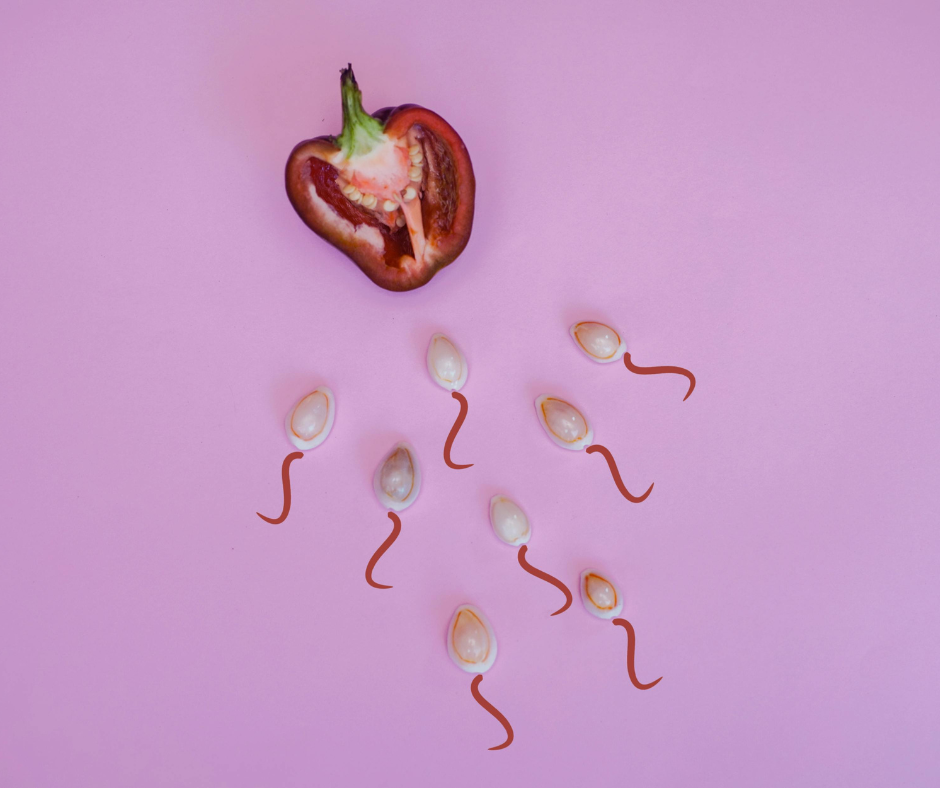Women’s Fertility Medicine: A Naturopath’s Holistic Approach to Conception
When it comes to women’s fertility, the conversation often starts with prescriptions, procedures, and lab results. While conventional fertility medicine has its place, it’s not the only path to conception and it doesn’t have to be without a supportive nutritional and lifestyle adaptations.
As a naturopath, trying to conceive is a whole-body approach, not just a function of the reproductive organs. True fertility medicine should address not only ovulation and hormone levels, but also nutrition, lifestyle, emotional well-being, and environmental factors. We can also incorporate targeted herbal medicine to support hormone balance, along with microbiome-focused strategies to enhance reproductive health and increase the chances of conception.
If you're navigating fertility challenges or simply want some tips to optimise fertility while trying to conceive, read on and we will walk through the naturopathic approach to women's fertility medicine, rooted in evidence, nature, and compassion.
What Is Women’s Fertility Medicine?
Women’s fertility medicine refers to any therapy or protocol that aims to support:
Healthy ovulation and menstrual cycles
Hormonal balance (estrogen, progesterone, LH, FSH)
Egg quality and ovarian function
Uterine health and implantation
Emotional and mental readiness for conception
In conventional medicine, this might include medications like Clomid, Letrozole, or hormone injections, as well as assisted reproductive technologies like IUI or IVF.
In naturopathic fertility medicine, we focus on restoring and optimizing your body's natural ability to conceive—working with the root cause, not just the symptoms.
The 2 approaches to fertility can complement each other sweetly.
The Naturopathic Approach to Fertility
1. Root Cause Analysis
Underlying symptom management, is a conversation around:
Why is ovulation irregular or absent?
Are there signs of inflammation or autoimmune issues?
Is the thyroid functioning optimally?
Is stress hijacking hormone production?
Functional testing may include:
DUTCH hormone panel
Comprehensive thyroid tests
Nutrient testing (iron, B12, vitamin D, magnesium)
Blood sugar and insulin markers
Gut and microbiome health analysis
While your primary carer will address many of these factors, it is a naturopath’s specialty to thoroughly explore and optimise underlying pathology, as well as address environmental, dietary, and lifestyle factors.
2. Food as Fertility Medicine
A personalized nutrition plan is foundational. The right foods can:
Support hormone production
Improve egg quality
Reduce inflammation
Balance blood sugar (essential for PCOS and insulin resistance)
Key foods for fertility:
Healthy fats (avocados, nuts, olive oil)
Leafy greens and cruciferous vegetables
Organic protein sources (eggs, legumes, grass-fed meats)
Omega-3 rich fish (like wild salmon)
Seeds like flax, chia, pumpkin (for hormone balance)
Limit:
Processed sugar
Refined carbs
Alcohol
Caffeine (in excess)
3. Fertility-Specific Supplementation
While every body is different, some of the most common naturopathic fertility supplements include:
Prenatal with methylated folate (5-MTHF)
CoQ10 (Ubiquinol) – supports egg quality
Myo-inositol – helpful for PCOS and cycle regulation
Magnesium glycinate – for PMS, sleep, and hormone balance
Omega-3s – reduce inflammation and support uterine lining
Chaste Tree (Vitex) – supports progesterone and regular ovulation
Always consult a licensed naturopath before beginning herbal medicine or practitioner online supplements.
4. Cycle Tracking & Fertility Awareness
Understanding your cycle is empowering—and essential. Tools like:
Basal body temperature (BBT)
Cervical mucus monitoring
LH ovulation strips
help identify your fertile window and assess if ovulation is happening consistently.
Naturopaths often teach Fertility Awareness Method (FAM) to help you better understand your body's natural rhythms—whether you're trying to conceive or preparing your body for the future.
5. Stress & Emotional Support
Chronic stress affects the hypothalamic-pituitary-ovarian (HPO) axis, the system that governs your menstrual cycle. High cortisol can suppress ovulation and delay or prevent conception.
Naturopathic treatments to support emotional health:
Adaptogenic herbs (like ashwagandha, rhodiola, or holy basil)
Mind-body therapies (yoga, acupuncture, journaling)
Nervine herbs (passionflower, lemon balm, chamomile)
Sleep hygiene + nervous system regulation practices.
If you need further support for nervous system regulation and stress management check out our program “Sanctuary”
6. Detoxifying the Environment
Environmental toxins such as BPA, phthalates, and parabens can disrupt hormones and impact egg health.
Detox your environment by:
Using glass or stainless steel containers
Choosing fragrance-free personal care products (we love Weleda)
Switching to non-toxic cleaning supplies (we love KOH)
Avoiding pesticides and opting for organic where possible
Real Talk: When to Combine Naturopathic and Conventional Fertility Medicine
There’s absolutely a time and place for IVF, IUI, and fertility medications. The naturopathic approach can be used on its own, or in combination with conventional fertility treatments to improve outcomes and reduce side effects.
Common integrative scenarios:
Prepping your body for IUI or IVF (improving egg quality, reducing inflammation)
Supporting hormone regulation post-birth control
Complementing PCOS or endometriosis treatments
Recovering after miscarriage or failed implantation
Women’s fertility medicine is not just about “getting pregnant.” It’s about supporting your whole self—body, mind, and spirit—so that your fertility is a natural extension of vibrant health.
Whether you're just beginning your fertility journey or have been on the road for a while, a naturopathic approach can help you reconnect with your body, identify hidden imbalances, and optimize your path to pregnancy—naturally and holistically.
💕 Ready to Explore Holistic Fertility Medicine?
I offer personalized fertility support plans tailored to your cycle, health history, and goals. Book a consultation today to take the next step toward empowered, natural fertility care.
